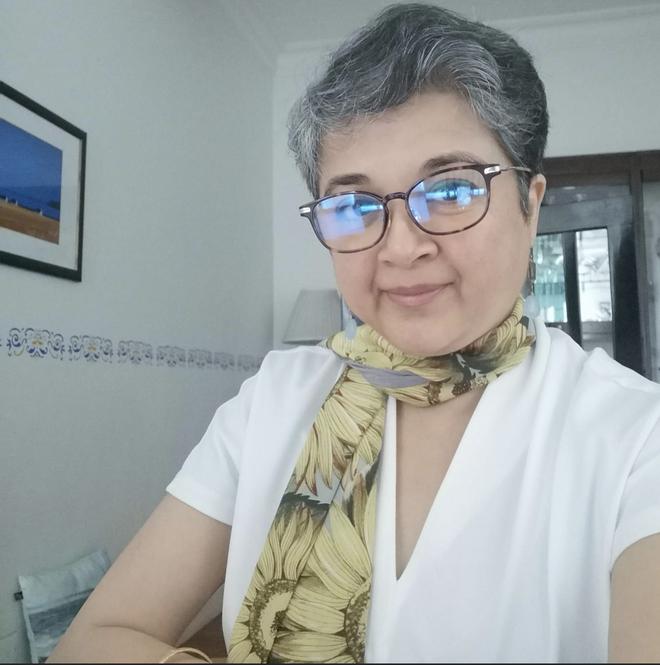Theirs was a story that needed to be told. Women from the smallest of communities in Singapore, such as the Dawoodi Bohras, Sikhs, Jews, and Eurasians: what were their lives like? They are ordinary women, whose lives, according to writer Nilanjana Sengupta are “made extraordinary only by the love, empathy, and fortitude they invest in it”. She has documented them in her latest book Chickpeas to Cook. Excerpts from an email interview with the Singapore-based author.
Why did you choose to write about the smallest of communities in Singapore? Why women, in particular?
Chickpeas to Cook looks at women of the smaller communities of Singapore. The Parsees, Jews, Taoists, Sikhs, Chettiars, etc — communities which at times consist of only a few hundred families, where women find themselves caught at difficult intersections of faith, religion, family, community, and country. It’s a book about dying cultures, and vanishing dialects and frankly, I have carried it around in my mind for the last few years, particularly since the trend of majoritarianism has become an overbearing one around the world. I wanted to write particularly about women because they are the ones who lead difficult lives, constantly trying to balance the more traditional demands of their communities with the fast-changing modern world outside. They struggle to keep their rituals and practices alive, giving it a new lease of life with every generation. Despite the progress made in terms of equality of rights, women continue to be held up as symbols of family honour — the right dress, right husband, the right time to come back home — it’s the women who are supposed to make all the right choices.
Did you enjoy the process of meeting these women and documenting their stories?
A great deal of primary and secondary research went in; the book took me more than three years to complete. There was a time when I was reading so much of mainstream religious texts that my family was worried (or was it relieved) that I would finally leave home and hearth and take off for the Himalayas! But I really wanted to get to the very roots, crystallise and understand the very essence of the religious faiths and cultural norms these women followed. Of course, it was a great deal of fun meeting and documenting their stories — the complex, multifaceted narratives of individuals from various faiths, cultures, and walks of life; the similarities, the differences faced in shared human experiences. To me these women embody the very essence of the Singapore identity.

Were friendships formed and laughter and stories exchanged?
As I was passed on from one community to another, I realised there was quite a sorority here. It was an extremely organic process, and the experience changed as I moved from one community to another — it transitioned from the tangible to the abstract, from the every day to the profound. But make no mistake, this was not because of one faith was more profound than the other or one culture more insightful than the other. It was I who changed, as Paulo Coelho has said, as one finds answers, the questions change. It was from these women that I learned some basic truths of life, some hermetic arguments. I call them my ‘Mita’ — friends for life.
What did you take away from working with these women and telling their stories? What is that one thing that will remain with you?
Oh there were so many things — how conflicted our relationship often is with family legacy or lineage. How different is religion from culture. Culture comes from years of collective living, it shapes us as a social being, determines our social behaviour — what we wear, what we eat, how we celebrate and mourn.
But religion comes to us in revelations — even for the faithful — it comes to us in certain difficult or emotional moments when one suddenly knows in an epiphanic moment that this is something that is true. It remains as the foundational bedrock in us and comes forth in certain quiet or tumultuous moments — and we suddenly realise that religion is merely a path guided by love to know our higher self.
And once we have been hit by a sudden revelation like this it often happens that we turn to culture even more strongly because all those fragmented bits suddenly make sense, But then this leads also to my next formulation — that culture can be isolating. For within our cultural communities we are drawing consistently on our traditional energies, and this can separate us from others. Hence, the constant need to peek over walls, find common ground.
Tell us about your life in Singapore. Do you visit India often?
We moved to Singapore 13 years ago, I used to be a freelance journalist then and was doing an article on Subhas Chandra Bose and the INA (Indian National Army). While researching the article, I realised that perhaps more than in India (and mind you I have grown up in Kolkata, am from Netaji’s alma mater, Presidency College) Netaji’s legacy is far more vibrant here. And that’s how my first book, A Gentleman’s Word: The Legacy of Subhas Chandra Bose in Southeast Asia (Cambridge University Press 2013) came about.
That was Singapore’s first overture of friendship towards me and since then the bond has grown. And yet I remain an Indian citizen, dream of finding my way back to my country some day. The quiet, serpentine gullies of North Kolkata where I grew up — where you see rolled up mosquito nets and hear old rumbling DC fans and automatically life slows down a notch or two.
Published by Penguin Random House, Chickpeas to Cook is priced at ₹399 and is available on Amazon and Flipkart.







